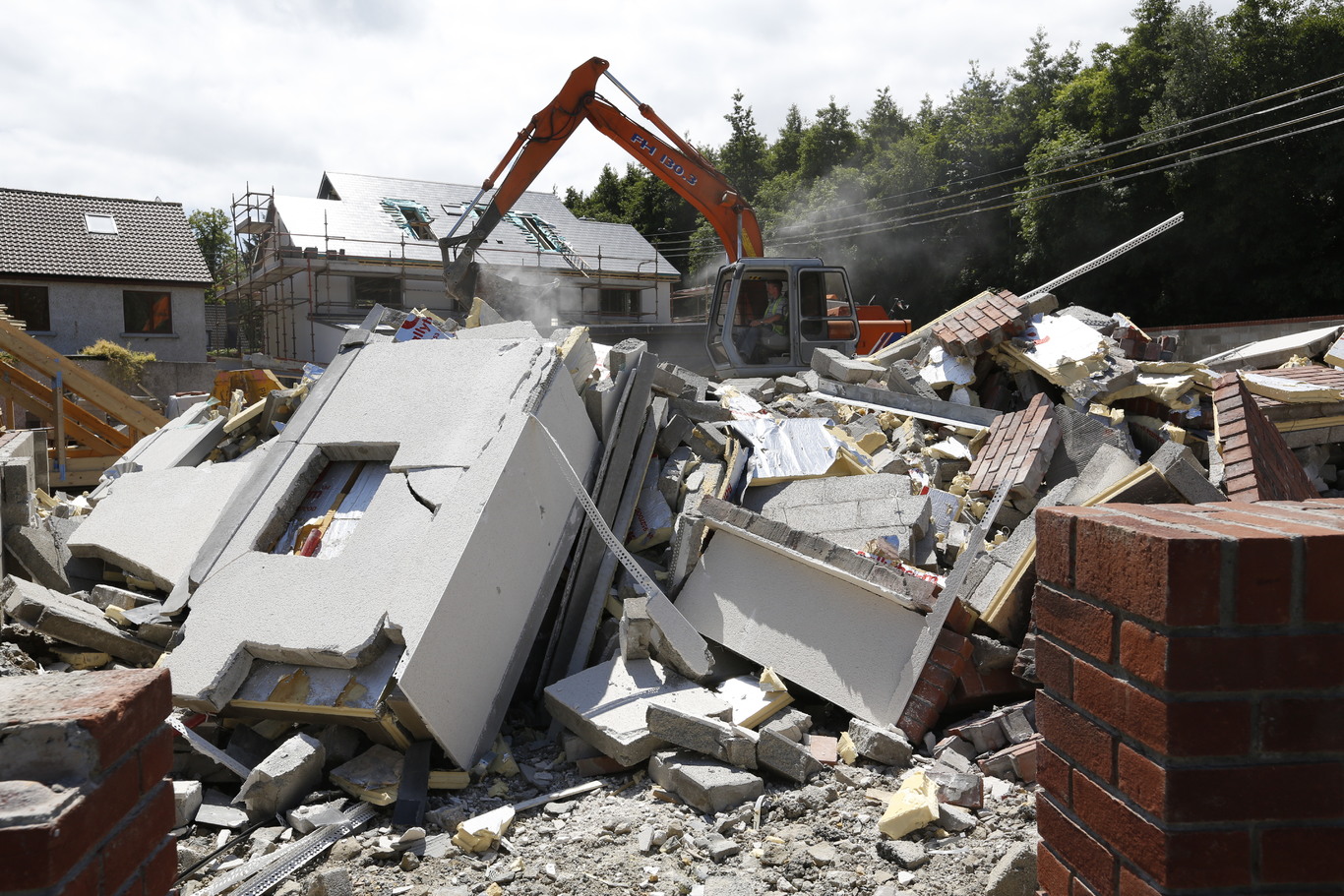There's a plan to ban dodgy builders winning projects funded by the Irish taxpayer
Many people who bought during the Celtic Tiger lost their homes to pyrite.
BUILDING INDUSTRY PROFESSIONALS who have been found to breach safety standards should be banned from winning public tenders.
That’s according to the Housing Committee, which today published a report calling for higher building standards in new buildings and protections for homeowners who experience defects in their properties.
This was endemic in houses quickly built during the Celtic Tiger, many of which were later found to be riddled with pyrite.
The report laid out several ways that this could be tackled, one of which would be to restrict some parties from applying for state tenders.
At the moment if a developer who has built homes with defects found in them applies for a state tender, their previous offences may be ignored for the new project if they submit the best bid.
However, one of the recommendations of the new report was for “a bar on the awarding of publicly funded construction project tenders should be introduced”.
It said that this should help “prevent such contracts from being awarded to developers, builders or associated construction professionals found to be in serious breach of building standards or fire safety regulations”.
The study also outlined several other ways that problems like pyrite could be avoided, such as making latent defects insurance mandatory.
“Latent defects insurance should be a legal requirement to be provided by the developer/builder on the sale of all new residential properties,” it said.
Best option
This chimes with what several industry bodies have said, such as the Royal Institute of the Architects of Ireland (RIAI).
RIAI boss Katheryn Meghan previously said that while there may be some concerns about the cost of latent defects insurance, “in the long run it is the best option for the consumer and will save on legal bills”.
In many cases involving pyrite, it has been unclear who is responsible for problems that arise.
Homeowners have had to look at taking action against a variety of parties, including certifiers, developers and architects, making the process of attaching responsibility a long and costly one.
The committee also called for the establishment of a redress scheme to compensate consumers hit by latent defects.
It suggested a number of ways this could be funded, including an industry levy, tax write-offs for those who do work or an interest-free loan scheme to help homeowners.
There have been other efforts to regulate the building sector, including making it a legal requirement for companies in the industry to sign up to a register in order to prove their competence.






